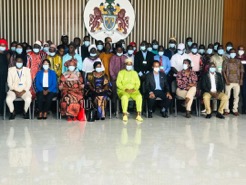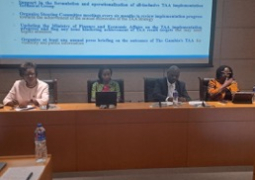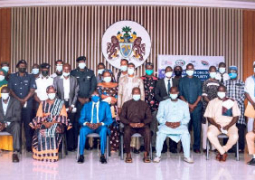
Dr. Desta A. Tiruneh, Country Representative for the World Health Organisation (WHO) said the country cannot nurture a healthier population without a proper Food Safety Policy.
“Food safety is becoming a more complex phenomenon, influenced by an array of inter-related issues. These include global food threats, global changes and their impact on the food safety system, the rise in new technologies and digital transformation, environmental challenges, changing expectations and behaviour around food and demographic changes. Food safety is everyone’s business and therefore requires multi-stakeholder action. From the farm to the fork, food passes through different hands and processes. Its safety therefore requires an integrated approach including sustained collaboration, cooperation and coordination among different actors as well as generating and sharing evidence-based information and promoting action at different levels and stages for a healthy nation,” he pointed out.
He commended the National Food Safety and Quality Authority (FSQA) for being sensitive to the complexity and diversity surrounding food safety and convening the multi-stakeholder meeting on National Food Safety Policy.
H.E Badara Joof, Vice President of the Republic of The Gambia said a proper Food Safety Policy can help improve public health, nutrition, enhance access to food trade, reduce poverty, increase food security and protect the environment.
He added that the adoption and implementation of the National Food Safety Policy is expected to strengthen a robust, effective and efficient food control system in the country.
Mamudu Bah, Director General FSQA said stakeholders form the basis of the day to day affairs of the nation, therefore if they come together and join hands, food safety system will be well strengthened.
The FSQA is the Authority with powers of delegation mandated to officially control the safety and quality of food and animal feed whether locally produced, imported or destined for export.
Read Other Articles In National News

Ministry of Finance, World Bank hold 1st steering committee meeting
Jan 23, 2023, 1:27 PM




